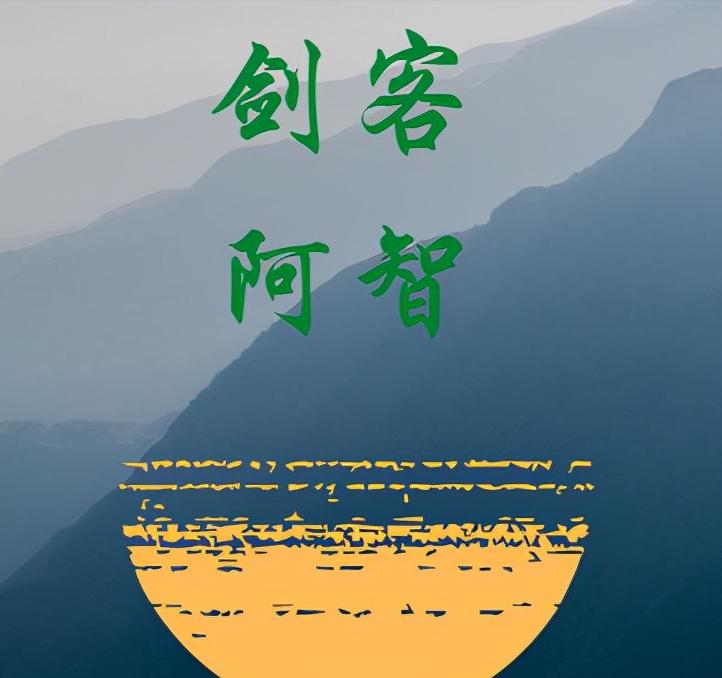☆ Become a special reader of Achi
Above the "Swordsman Azhi" to the right→ click to follow

—————— pay attention to the history that I show you differently——————
Today marks the 76th anniversary of the victory of the Chinese People's War of Resistance Against Japanese Aggression and the World Anti-Fascist War.
76 years ago, Japan signed an unconditional instrument of surrender on the battleship "Missouri" in Tokyo Bay, and the Chinese people finally won a great victory in the War of Resistance Against Japan, re-established China's international status in the world, and opened up a bright prospect for the great rejuvenation of the Chinese nation.
Today, when we look back on that thrilling period of history, we must not forget the suffering and humiliation suffered by the Chinese nation, the spirit of the martyrs' bloody war of resistance, and the thorough reckoning and profound reflection on that war.
On September 2, 1945, He Yingqin accepted the surrender of the Japanese army on behalf of the Nationalist government
After the outbreak of the Pacific War, all governments decided that after the end of the war, they must settle accounts for the crimes committed by German fascists in Europe and try the war criminals concerned according to law. The United Nations War Crimes Commission was established in London, England. On January 13, 1942, the British presided over the first London Conference, and the Chinese minister to the Netherlands, Jin Wensi, was invited to attend the meeting and issued a declaration stating that Japan's aggression against China should be punished on the same principle - the Preparation and preparation of the Chinese Government for the trial of Japanese war crimes and criminals began at this time!
Minister Kim asked Minister Si to ask for a note on Japan's war crimes of aggression against China
In January 1946, The United States, the United States and britain held a meeting of three foreign ministers in Moscow, and decided that the United States would establish an international military tribunal for the Far East in Japan under the auspices of the United States to try Japanese Class A war criminals. With regard to the Tokyo trial, which we used to think was in Tokyo, in fact, Tokyo only tried Class A war criminals, and 53 military tribunals have been set up in Asian countries, including 10 in China, to try the rest of the war criminals.
International Military Tribunal for the Far East
Report on the investigation of the evidence of war criminals
From August 1945 to May 1947, a total of 2,259 Japanese war criminals were arrested across China. Military tribunals have been set up in 10 cities, including Beiping, Shenyang, Nanjing, Guangzhou, Jinan, Hankou, Taiyuan, Shanghai, Xuzhou, and Taipei, to try war criminals. From December 1945 to January 1949, a total of 863 Japanese war criminals were tried, of whom 139 were sentenced to death, more than 350 were sentenced to fixed-term imprisonment and life imprisonment, and 360 were not prosecuted due to insufficient evidence.
Trial of war criminal Gu Shoufu
Gu Shoufu was executed by firing squad
The trial of Japan after the War of Resistance Against Japanese Aggression was an important part of the Chinese nation's War of Resistance Against Japanese Aggression. This was the first international trial conducted independently by China, and it was also an unprecedented war trial conducted by Chinese judicial personnel using international law and China's domestic law. This is a major event that asserts sovereignty and upholds justice. In the context of no precedent and no experience, independently conducting such a large-scale international trial is also a severe test for Chinese judicial workers. It is fair to say that the diplomatic, legal and military personnel of the National Government, under very difficult conditions, have done their utmost to complete this trial on a large scale.
Member of the Guangzhou Military Tribunal
From the "918" incident in 1931, when Japan began to invade China, to the victory of the War of Resistance Against Japan in 1945, China was the country that suffered the longest and suffered the most casualties before and after World War II. However, for various reasons, Japan's crime of invading China has not been comprehensively and thoroughly liquidated and studied.
In the courtroom of the Tokyo trial, due to the leadership of the United States, the crime of aggression against China was not profoundly exposed as Japan's primary and most serious crime. Japanese war criminals tried in China are also limited in exposing war crimes due to evidence collection and time relations, domestic politics and war reasons. There were also many crimes, such as the sweeping of the Communist Anti-Japanese base areas, the crimes of sweeping up the anti-Japanese coalition forces in the northeast region, and the suppression of anti-Japanese people, which were not included in the trial.
Because of the lack of depth and comprehensiveness of that year, the Japanese right-wing would deny the war crimes committed against the Chinese people, and even call the Nanjing Massacre a "fiction", which caused strong indignation among the Chinese people and also made Chinese scholars deeply reflect.
"Never forget the past, and be the teacher of the future" is the principle of Sino-Japanese relations. We will not forget the aggression and crimes committed by Japanese militarism against China, but the purpose of remembering history is to prevent it from repeating itself. As part of the Tokyo trials, the Chinese trial punished Japanese war criminals and confirmed a new order of post-war Asian and international peace, which remains the cornerstone of peace in Asia and the world.
A long-lost history
A little-known post-war trial
Learn from the past
It shows the firm determination of the Chinese nation to judge the Japanese Kou
It shows the great sacrifice of the Chinese people in the all-round war of resistance
This work is reproduced from the WeChat public account: Dangdang Reading Book